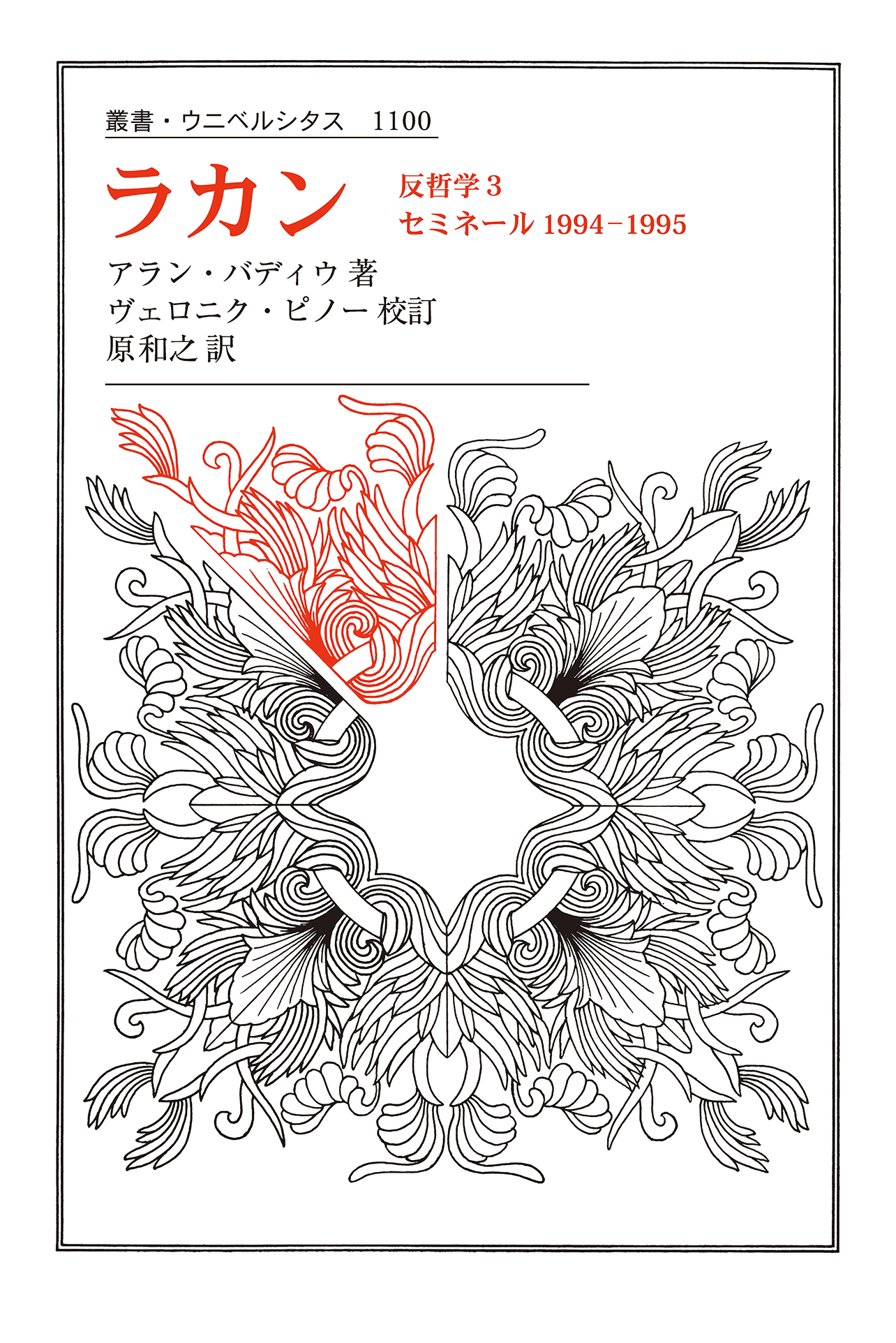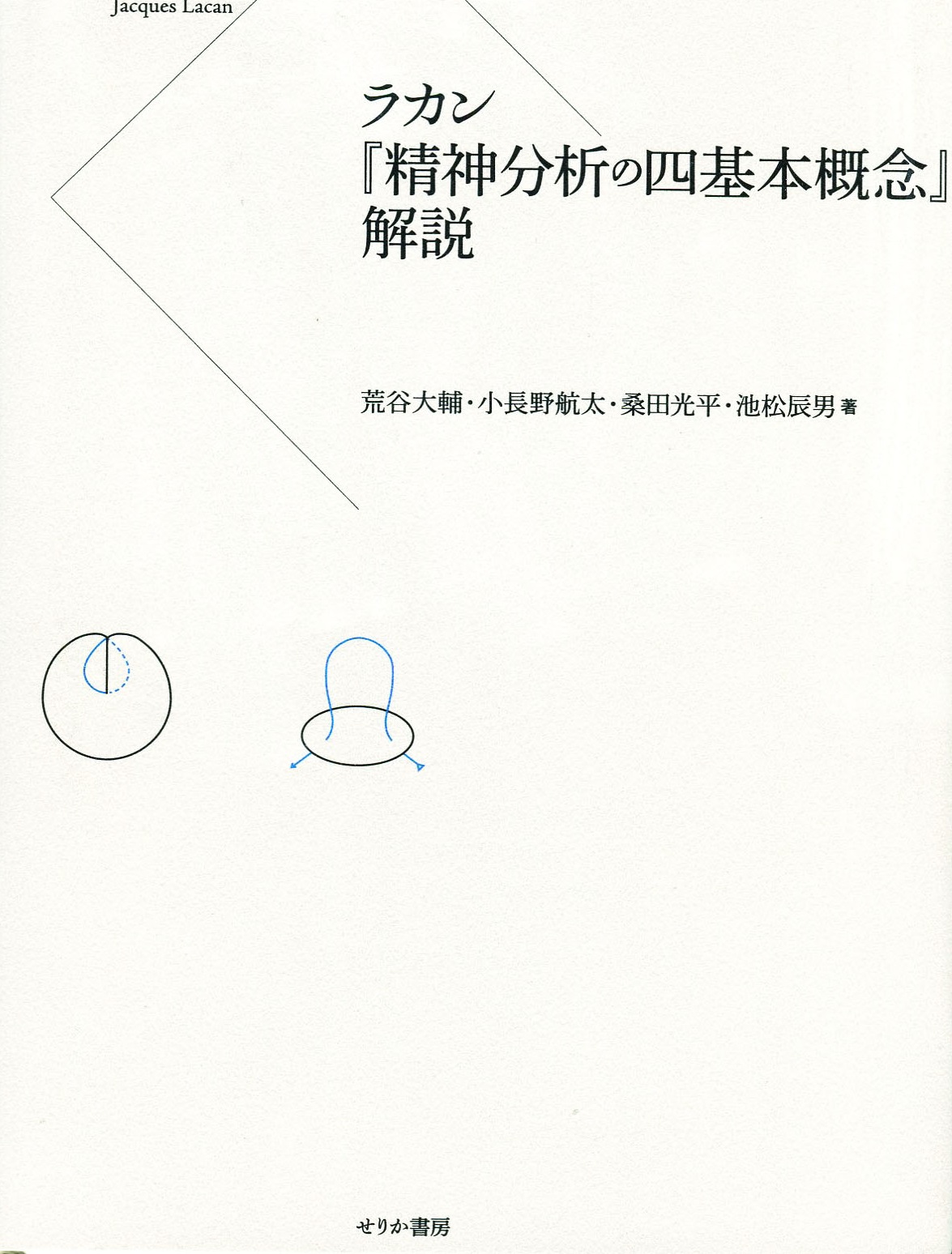
Title
Book series: Universitas 1100 Lacan (Lacan: Anti-Philosophy 3 (The Seminars of Alain Badiou), 1994–1995)
Size
356 pages, 127x188mm
Language
Japanese
Released
August, 2019
ISBN
978-4-588-01100-9
Published by
Hosei University Press
Book Info
See Book Availability at Library
Japanese Page
Psychoanalysis, invented by the Viennese neurologist Sigmund Freud at the end of the 19th century as a treatment for hysteria, and which eventually spread throughout the world to lay the groundwork for modern psychotherapy, has developed differently wherever it has taken root. In France, in particular, psychoanalysis has developed in close conjunction with the humanities, especially linguistics, literature, and philosophy and a central figure in this development has been the French psychoanalyst and psychiatrist Jacques Lacan.
Lacan's discourse with its unique incorporation of classical philosophy, did not go unnoticed by the progressive philosophers of his time and had a strong impact from the 1950s onwards. While some chose to reference Lacan and others were influenced by him, still others tried to compete or rebel against him and were critical of his ideas. All of this, however, took place within the framework of the two seemingly different realms of psychoanalysis and philosophy. This framework appears quite natural within the university context, which suggests Lacan is better defined as a psychoanalyst rather than a philosopher. But is that really so?
Alain Badiou, whose lectures are compiled in this book, easily jumps over the barriers of such institutional distinctions to declare that Lacan is a philosopher. This probably has a lot to do with the fact that Badiou encountered, and was powerfully influenced by, Lacan's ideas at the age of twenty or so, before he had completed his own transformation into a philosopher. His bold thesis, however, required Badiou to contemplate two important questions. One, how has philosophy been perceived that Lacan is not to be considered a philosopher, and two, what is the inherent nature of philosophy by which Lacan can be considered to be a philosopher? At the core of Badiou’s answers to these two questions is nothing other than the idea of “anti-philosophy.”
The French term antiphilosophie dates back to the 18th century when it was used by Christian forces opposing the philosophical movements of the Enlightenment. In fact, Badiou was using this term in a general sense to denote a position critical of philosophy or that would even “discredit” philosophy. At the same time, however, Badiou claimed that philosophy has a radically dual origin, expressed by the conceptual coupling of philosophy and anti-philosophy, similar to the dual concept of matter and anti-matter that is used to explain the origin of the universe in physics. This dual origin, as embodied by Parmenides and Heraclitus, argues Badiou, has momentarily been reconciled in the direction of the former, such that the later development of questions on being and Heidegger's “metaphysics” have come to define the widely accepted forms of “philosophy” while the series of thoughts originated by the latter continue to appear intermittently both inside and outside the “history of philosophy.” By placing Lacan within the continuum of anti-philosophy dating back to the Stoics and evolving through St. Paul, Pascal, Rousseau, Kierkegaard, Nietzsche, and Wittgenstein, Badiou did not mean that Lacan opposed philosophy as such but that he was pointing the way to another form of philosophy. Badiou does more than simply assign Lacan the status of an anti-philosopher; he asserts that Lacan is the “last anti-philosopher,” bringing the long line to conclusion, and therefore marks the start of a new philosophy.
This book is a compilation of nine lectures Badiou gave on Lacan’s “anti-philosophy,” in a sort of reverse illumination of his own thoughts about philosophy as presented in his 1988 book, L'Être et l'Événement (Being and Event). It also reveals the reason why he positions Lacan as conditional for the rebirth of philosophy in his 1989 Manifeste pour la philosophie (Manifesto for Philosophy). But even more important is that this book is an invaluable testimony to how Badiou, as a young man deeply impacted by Lacan's ideas of psychoanalysis, carried out a long and unflinching examination of the questions raised by those ideas, addressing throughout the totality of Lacan’s work (including his psychoanalytical practice), even after Badiou himself moved on to the field of philosophy. What we see through his lectures are the possibilities inherent in a particular form of interdisciplinary research that is intertwined with one’s own existence. I sincerely hope that our young students will pick up and read this book.
(Written by HARA Kazuyuki, Professor, Graduate School of Arts and Sciences / 2020)



 Find a book
Find a book


